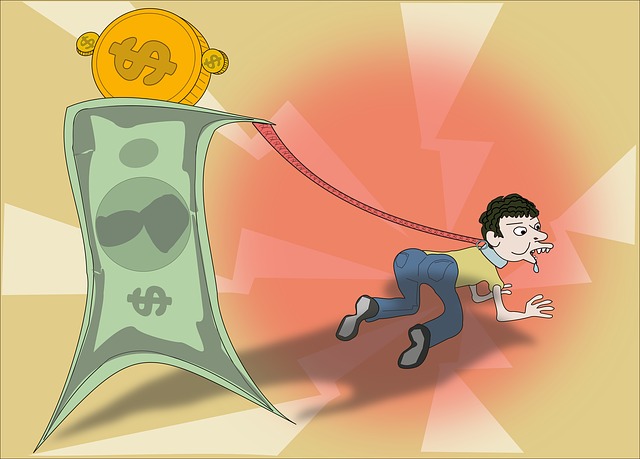Who Is Going to Buy All This US Debt?
During a podcast last week, Peter Schiff asked a key question: Who is going to buy all of this US debt?
The US Treasury Department plans to auction off around $1.4 trillion in Treasuries this year. And it won’t end there. The department expects that pace of borrowing to continue over the next several years.
That’s a lot of bonds. Who will buy them? Because the biggest purchasers of US debt aren’t in a buying mood.
As Samual Black wrote for the Sovereign Man, this is a “monumental story.”
Not only does the US owe, by far, the greatest amount of debt ever accumulated by a single nation in human history, but $25 trillion is larger than the debts of every other nation in the world combined.”
The US government depends heavily on three major buyers to finance its debt – China, Japan and the Federal Reserve.
And all of them are pretty much out of the market right now.
As we reported last month, China may slow or even stop its purchase of US Treasuries. At the time, Peter put the news into perspective.
A. China is the largest buyer and owner of US Treasuries in the world. But B. we just cut taxes. We cut taxes and not spending, so we are financing these tax cuts by borrowing more money, by running bigger deficits, by selling more bonds. And if the largest buyer and owner of those bonds is saying, ‘No más,’ well then that is a big problem. Because who is going to step up and replace the Chinese?”
Meanwhile, the Federal Reserve ended quantitative easing. In fact, it’s now in the early stages of quantitative tightening in an effort to shrink its balance sheet. Not only has the Fed stopped buying, it is allowing Treasuries on its books mature and roll off. That means the Treasury Department will have to find new bond buyers to pay off the Fed as its Treasuries mature.
And just today, Bloomberg reported rising currency hedging costs and the surge in short-term bond yields are “driving Japanese money managers away from Treasuries.” Instead of buying US debt, the Japanse are turning toward Europe.
‘There is no doubt the attractiveness of US bonds is fading,’ said Kensuke Niihara, Tokyo-based head of investment solutions group and currency at State Street Global Advisors, which oversaw $2.6 trillion globally as of end-Sept. ‘Considering the short- and long-term bond yield differentials, which is very important for Japanese investors, countries like the UK and France would look attractive, especially France.'”
This is confirmation of a report Bloomberg published last month, saying “Investors in Japan and China are shunning US Treasuries, and the conditions are ripe for that cash to find a home in Europe.”
This isn’t merely theoretical. According to the Sovereign Man, official data from the US Treasury Department confirms both China and Japan have slightly reduced their holdings of US government debt since last summer. So, not only are they not buying, the Chinese and Japanese appear to be divesting themselves of US debt.
And that brings us back to the trillion dollar question: who is going to buy these bonds?
This can really only go one way. Interest rates have to rise. It’s a simple supply and demand calculation. The Treasury Department has to sell more than a trillion in bonds. Nobody wants to buy. Interest rates will rise to entice buyers into the market.
And that, ladies and gentlemen, is a big reason the stock market has suddenly gotten very nervous. Higher interest rates don’t only apply to government debt. They also have a major impact on corporations and individuals. There’s a reason why the Fed tries to push rates artificially low during an economic downturn – to “stimulate” the economy. It’s common sense that rising interest rates will have the opposite effect.
The Sovereign Man summed up the implications.
Make no mistake: higher interest rates will have an enormous impact on just about EVERYTHING. Many major asset prices tend to fall when interest rates rise. Rising rates mean that it costs more money for companies to borrow, reducing their leverage and overall profitability. So stock prices typically fall. It’s also important to note that, over the last several years when interest rates were basically ZERO, companies borrowed vast sums of money at almost no cost to buy back their own stock. They were essentially using record low interest rates to artificially inflate their share prices. Those days are rapidly coming to an end.”
There are basically two ways this can go. The Fed can sit back, let the stock market crash and watch the recession take hold. Or, it can try to save the markets and the economy. That means backtracking, slashing rates, and launching QE4 with more money printing to buy up all of these Treasuries. Of course, option two would likely come with a currency crisis.
I don’t know about you, but neither of those scenarios sounds too good to me.
Get Peter Schiff’s most important Gold headlines once per week – click here – for a free subscription to his exclusive weekly email updates.
Interested in learning how to buy gold and buy silver?
Call 1-888-GOLD-160 and speak with a Precious Metals Specialist today!





 Since Nayib Bukele became president of El Salvador, El Salvador has been in American media and global political discussion more than ever. While much of the attention focuses on Bukele’s mass incarceration of gang members and a decline in homicide of over 70%, Bukele has also drawn attention to his favoritism towards Bitcoin and how he […]
Since Nayib Bukele became president of El Salvador, El Salvador has been in American media and global political discussion more than ever. While much of the attention focuses on Bukele’s mass incarceration of gang members and a decline in homicide of over 70%, Bukele has also drawn attention to his favoritism towards Bitcoin and how he […] With gold hitting yet another awe-inspiring all-time high in the wake of Powell’s remarks reassuring markets (more or less) to expect rate cuts in 2024, a few analysts are pointing out risk factors for a correction — so is there really still room to run?
With gold hitting yet another awe-inspiring all-time high in the wake of Powell’s remarks reassuring markets (more or less) to expect rate cuts in 2024, a few analysts are pointing out risk factors for a correction — so is there really still room to run? Gold hit a new all-time nominal high, surpassing the previous record set in December of the previous year. The precious metal’s price reached approximately $2,140, indicating a robust and continuing interest in gold as a safe-haven asset, despite a rather peculiar lack of fanfare from the media and retail investors. This latest peak in gold […]
Gold hit a new all-time nominal high, surpassing the previous record set in December of the previous year. The precious metal’s price reached approximately $2,140, indicating a robust and continuing interest in gold as a safe-haven asset, despite a rather peculiar lack of fanfare from the media and retail investors. This latest peak in gold […] The gold price has been surging, with unprecedented central bank demand gobbling up supply. It has been a force to behold — especially as US monetary policy has been relatively tight since 2022, and 10-year Treasury yields have rocketed up, which generally puts firm downward pressure on gold against USD.
The gold price has been surging, with unprecedented central bank demand gobbling up supply. It has been a force to behold — especially as US monetary policy has been relatively tight since 2022, and 10-year Treasury yields have rocketed up, which generally puts firm downward pressure on gold against USD.  Total gold demand hit an all-time high in 2023, according to a recent report released by the World Gold Council. Last week, the World Gold Council (WGC) released its Gold Demand Trends report, which tracks developments in the demand for and use of gold around the world. Excluding over-the-counter (OTC) trade, 2023 gold demand fell slightly from 2022 […]
Total gold demand hit an all-time high in 2023, according to a recent report released by the World Gold Council. Last week, the World Gold Council (WGC) released its Gold Demand Trends report, which tracks developments in the demand for and use of gold around the world. Excluding over-the-counter (OTC) trade, 2023 gold demand fell slightly from 2022 […]